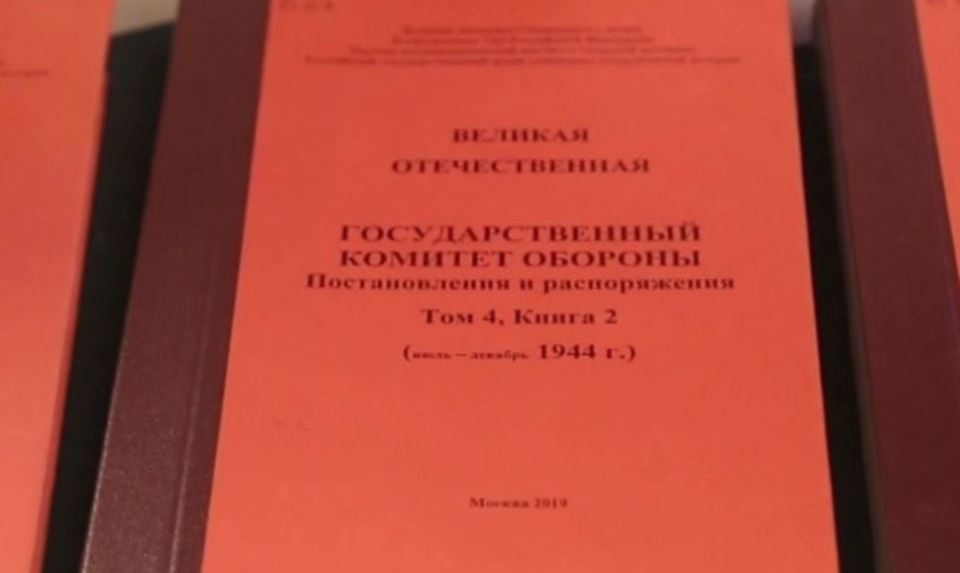
One of the most important prerequisites for the Great Victory
With the end of the Great Patriotic War, and then the Second World War, the Soviet Union was increasingly moving on a peaceful track. The abolition of 4 September 1945 g. State Defense Committee of the USSR - an emergency authority, who ruled the country all four years of the war.
Even a person completely far from military affairs will not deny, that war is a special state of society, radically different from peacetime and requiring the state, of society, of each person by the most. And those, who did not prepare for it in advance, did not think, how will he live and act in wartime, the war does not spare.
Alas, to the very 22 June 1941, the leadership of the Soviet Union underestimated the enormous importance of this issue. Meanwhile, major setbacks and defeats at the front, the scale and complexity of the tasks of transferring the economy from peaceful to military lines, to mobilize all forces and means to repel the aggressor showed, that the control system that has existed since pre-war times is not able to ensure the rapid transformation of the country into a single military camp.
“We felt the absence of a system with particular acuteness in the first days of the Great Patriotic War., - recalled a member of the Soviet government, People's Commissar of the Navy, Admiral N.G.. Kuznetsov. - State machine, guided along the rails of the improbability of Hitler's attack, had to stop, go through a period of confusion and then turn to 180 degrees. The consequences of this had to be corrected on the fly at the cost of great sacrifices ".
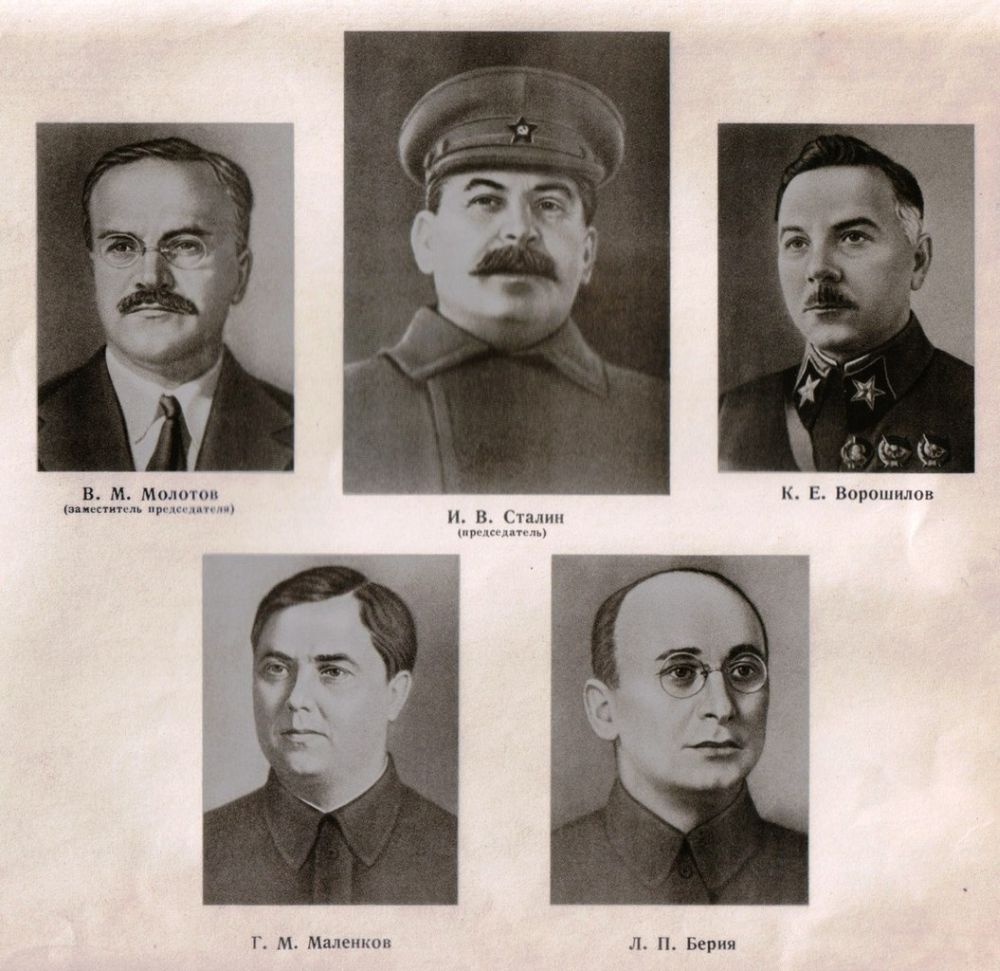
In accordance with the harsh requirements of wartime, the organizational structure was rebuilt, the content of the activity changed, the methods and style of work of public authorities were improved, state and military administration and leading officials. Stop the Nazi invasion, and then it was possible to defeat the enemy only if, if all parts of government work as a single mechanism, ensuring accurate and timely execution of the decisions of the highest authorities by the entire management chain. In the conditions of a sharp transition from peace to war,: the ability of state authorities and administration to quickly reorganize on a military basis, a reasonable combination of rigid centralism and initiative from below, high performing discipline, strict demand for an entrusted business, competence of persons, engaged in running the country and the armed forces.
Extraordinary tests, hitting the country, demanded and extraordinary methods of state and military administration. 30 июня 1941 g. by the resolution of the Presidium of the Supreme Soviet of the USSR, Council of People's Commissars of the USSR and the Central Committee of the All-Union Communist Party(b) GKO was formed. This authority was not provided for by the Constitution of the USSR, its establishment was dictated by the extreme conditions of the catastrophic start of the war, the need for the earliest mobilization of all material and spiritual forces to repel aggression and the requirements for maximum centralization of the country's leadership.
The GKO included: IV. Stalin (chairman), VM. Molotov (vice-chairman), a.e. Voroshilov, G. M. Malenkov, L.P.. Beria. It was these leaders and N.A.. Voznesensky, L.M.. Kaganovich, A.I. Mikoyan and N.A.. Bulganin assumed full power in the country at a key hour for her.
All members of the GKO were in the Politburo of the Central Committee of the All-Union Communist Party(b), they are, with the exception of Malenkov, were in the leadership of the government: Stalin as chairman of the Council of People's Commissars, Molotov, Beria and Voroshilov as his deputies. Malenkov, who held purely party posts - secretary of the Central Committee and head of the Central Committee's personnel department, together with Stalin as General Secretary of the Central Committee of the All-Union Communist Party(b) represented the party branch in the State Defense Committee. If consider, Stalin, Molotov, Voroshilov were also part of the Supreme Command Headquarters - the supreme body of strategic command and control of the armed forces, it becomes finally clear, how centralized the system of power took with the outbreak of the war.
The main feature of the new structure of power in the USSR was, that T-bills, as an emergency governing body, concentrated in his hands all the power, his decisions and orders were binding on all state, military bodies, party committees and public organizations, all citizens of the country. With the creation of the GKO, the constitutional bodies of state power and administration have undergone major changes - the Supreme Soviet of the USSR and the Council of People's Commissars of the USSR: they took a subordinate position in relation to the GKO, their functions and powers began to diminish rapidly. The formal head of state is the Chairman of the Presidium of the USSR Armed Forces M.I.. Kalinin was not even part of the GKO.
Not only the organizational structure has undergone a fundamental change, but also the content of the activities of the highest bodies of state power. The GKO solved the global task of organizing the repulse of Hitler's aggression in three main areas.
Exercising political and administrative control, he took measures to strengthen the rule of law in the country and military discipline, established the procedure for the evacuation of the population and industrial potential, regulated issues of interstate relations, in t. no. creation of foreign military formations on the territory of the USSR, determined measures for the eviction of certain groups of the population to remote areas of the country.
Providing military and economic management of the country, he determined the parameters of the development of the military economy, approved plans and organized the production of weapons, military equipment and other military products, took measures to build defensive lines, set supply standards, solved other problems in the conditions of the outbreak of war.
Solving the tasks of the military-strategic leadership of the armed forces, he determined the total size of the army and navy, the ratio of types and types of troops, volume and timing of calls and mobilizations, made decisions on the formation of new units, compounds, associations and changes in the organizational structure of the states of existing, appointed senior command personnel.
The military-strategic leadership of the USSR Armed Forces was carried out by the State Defense Committee through the military-administrative body, created also after the start of the war - the Headquarters of the Supreme High Command.
The GKO devoted most of its efforts to solving military-economic problems: of 10 thousand. of decisions they account for two thirds. The center for the concentration of its efforts in the military-economic field - the accelerated production of military equipment and weapons - has already been demonstrated by the State Defense Committee by its Resolution No. 1cc of 1 July 1941 g. "On the organization of production of medium tanks T-34 at the plant “Krasnoe Sormovo”».
The principle of the strictest personal responsibility was put in the basis of the GKO activity.. Immediately after being appointed to his post, each member of the GKO received a specific task and was responsible for the assigned area. So, Beria was appointed Commissioner for Armaments, responsible for the fulfillment and overfulfilment by the industry of production plans for all types of weapons, Besides, he oversaw the coal, oil and timber industries, Malenkov, as an authorized GKO commissioner, was instructed to lead the production of tanks., military mobilization work was assigned to Voroshilov.
The process of redistribution of responsibilities within the GKO was not short and one-line, he reflected how the search for the most optimal solutions, and a hidden struggle between individual politicians to expand their own spheres of influence. More noticeable as the war progresses, than other GKO members, Beria's political weight grew. In May 1944 g. he headed instead of Molotov, formed in December 1942 g. GKO Operations Bureau, which was responsible for the control and supervision of the work of all the people's commissariats of the defense industry, railway and water transport and most industrial commissariats. From the end 1944 g. Beria, retaining the powers of the People's Commissar of Internal Affairs and became deputy chairman of the Council of People's Commissars, on the personal instructions of Stalin, he also began to supervise the work on the "atomic project".
As for the methods of GKO management, then the top state leadership followed the line of their tightening. The administrative command was dominant., directive method: familiar to cadres even before the war, it turned out to be the most adequate for the conditions of the war.
The GKO did not have its own apparatus and relied on the existing management and public bodies, as well as their representatives in large cities, at the most important industrial sites, railways, construction sites. Exercising the strictest control over the implementation of the GKO resolutions on the production of military products, they possessed locally, essentially, unlimited rights. All authorities and administrations were instructed to comply with their requirements strictly.
Besides, from autumn 1941 g. at 65 frontline cities had defense committees, which included the chairmen of the executive committees of the Soviets of Working People's Deputies, garrison chiefs, heads of security agencies headed by secretaries of regional or city party committees.
Historical literature has penetrated the statement, as if the GKO was a virtual organ, in reality did not exist. Behind the abbreviation, supposedly designed to serve only as an imitation of collective leadership, was hiding, breakwater, only the sole power of Stalin. It is pointless to deny the previously inconceivable degree of concentration of power in the hands of this person.. However, there is no reason to talk about a certain convention of GKO.
Let's turn to the authority of G.K.. Zhukov, who, due to the official duties of the chief of the General Staff, and later - the Deputy Supreme Commander-in-Chief regularly participated in the work of the supreme body of power during the war. "At the meetings of the State Defense Committee, which took place at any time of the day, usually, in the Kremlin or at the dacha of I.V.. Stalin, the most important issues were discussed and resolved, - recalled the marshal. – Military plans were considered by the Politburo of the Central Committee of the party and the State Defense Committee.. People's Commissars were invited to the meetings, who were to take part in supporting operations. This allowed, when the opportunity arose, to focus enormous material forces on the most important areas, hold a unified line in the field of strategic leadership and, backing it up with an organized rear, link the military activity of troops with the efforts of the whole country ".
Marshal also recalled, that the GKO meetings were held in a business atmosphere, there were often sharp disputes, at the same time, opinions were expressed definitely and sharply. If it was not possible to come to a consensus, a commission was created from representatives of the extreme parties, which was instructed to report the agreed proposals at the next meeting.
Depending on the content, decisions made by members of the GKO were formalized in the form of decisions of the GKO, SNK USSR, directives of the Central Committee of the CPSU(b), decrees of the Presidium of the Supreme Soviet of the USSR, and if the questions concerned armed struggle and military development, then the directives of the Supreme Command Headquarters and orders of the USSR People's Commissar of Defense Stalin.
The brutal practice of war has confirmed, what measures, undertaken by the leadership of the USSR to radically restructure the system of public administration, justified themselves. With inevitable costs, they made it possible to solve the most difficult task of putting the country on a war footing., achieve a high degree of government control, armed forces and society, ensure a lasting unity of the front and rear, and ultimately became one of the most important prerequisites for the Great Victory.
Yuri RUBTSOV







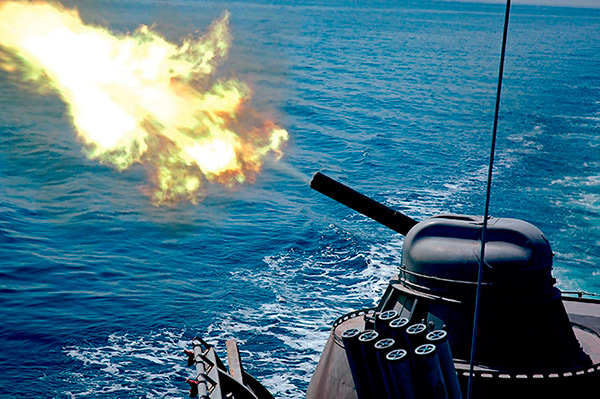
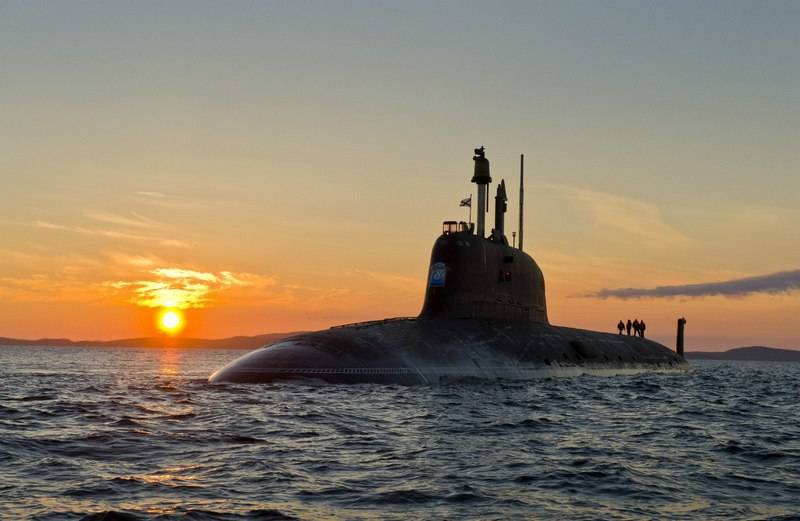
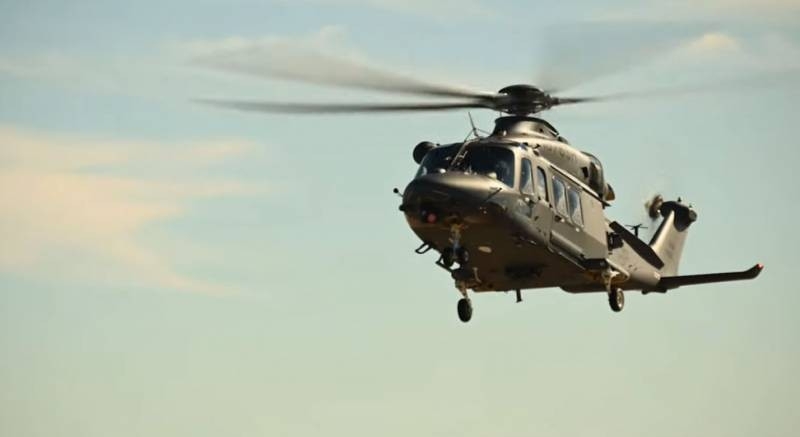


LOQ – proved its effectiveness in wartime. If so, why was it disbanded in 1945? This is a huge mistake of Stalin. What a great experience gone to waste. We are reaping the fruits of this ill-conceived decision today.. And even the example of China, who took over from the USSR and created his own STATE COUNCIL, which confirmed the effectiveness of this authority, does not teach us anything in Russia. What we have we do not store, having lost crying!!!!!